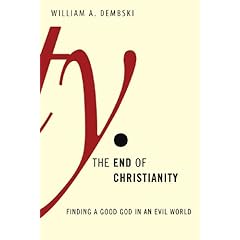Hunter Baker’s THE END OF SECULARISM
Hunter Baker, formerly a colleague of mine at Baylor and now associate provost at Houston Baptist University, has just published a book with Crossway titled THE END OF SECULARISM (go here for the Amazon.com listing). It provides a far-sweeping historical analysis of secularism within western culture. His critique of secularism is solid: Secularism is not neutral, nor is it something that simply happened thanks to the growing maturity and rationality of human beings. It is an understandable reaction to the various tragedies of church-state alliances in Western history. It is not, however, necessarily more rational nor more harmonious than any number of alternatives. It cannot claim the authority of science. It cannot escape the need to look beyond materialism in Read More ›
 Yesterday I met with the literary publicist hired by Broadman & Holman to promote The End of Christianity when it is released November 1st (for the Amazon.com listing, go
Yesterday I met with the literary publicist hired by Broadman & Holman to promote The End of Christianity when it is released November 1st (for the Amazon.com listing, go